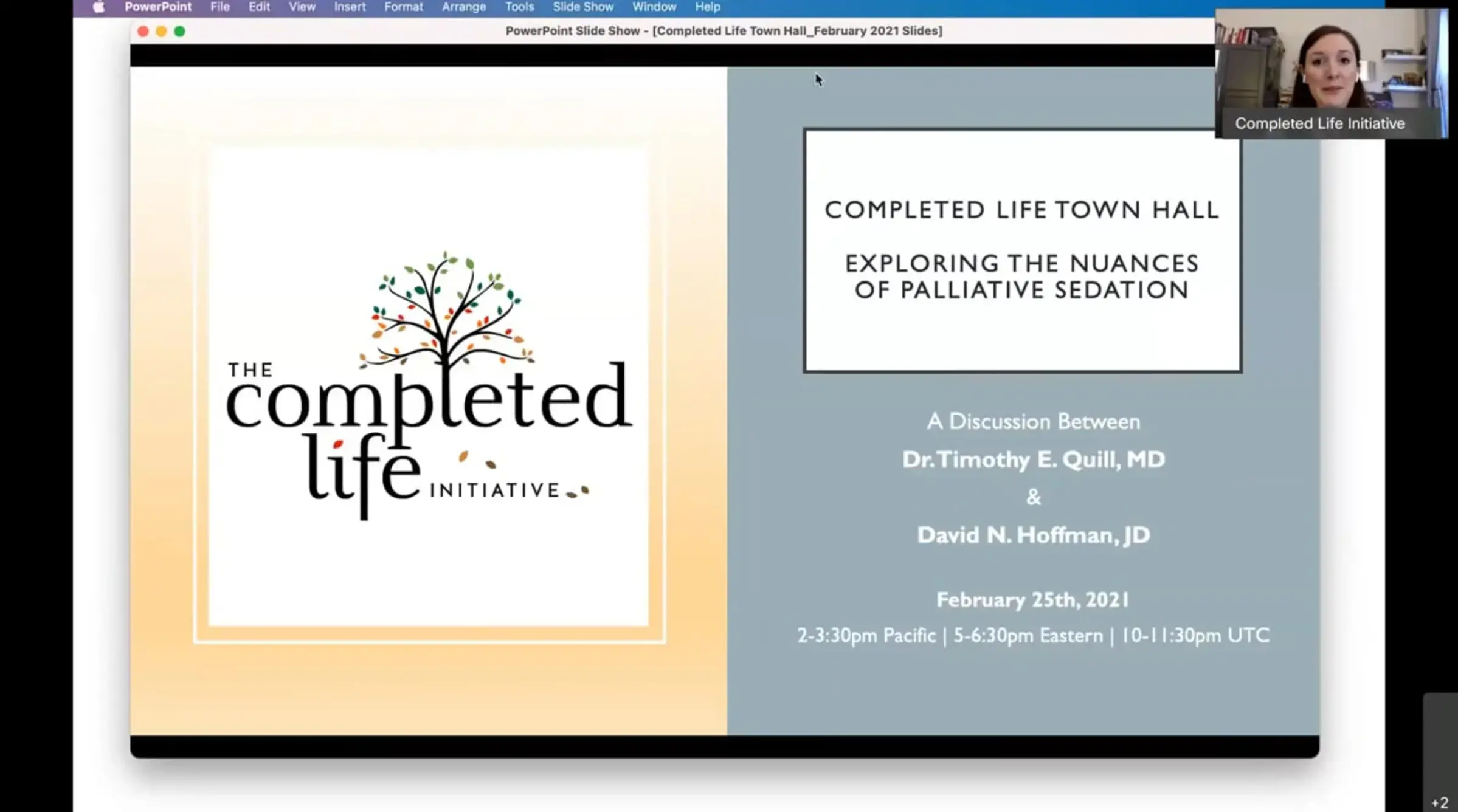Bioethics lecturer David Hoffman co-presented a discussion at The Completed Life Initiative’s February Town Hall on Palliative Sedation. The presentation explored the nuances, complexities, and range of options in palliative sedation, a last resort option for pain management. The panel also discussed the choice of intervening with a patient’s physical and existential suffering and the options that come with palliative treatment.
There are a range of considerations from a patient's perspective when facing palliative treatment, but Hoffman argues that clinicians have philosophical, moral, and emotional interests in how these issues play out as well. The first question Hoffman tackled was how involved a clinician may be in this decision making process. He first reminded the audience that one of the basic principles of clinical bioethics is that patients can indeed refuse treatment or make decisions that go against their clinician’s advice. Physicians must respect and support these decisions as long as the patient has “decisional capacity,” Hoffman noted, meaning they understand the medical facts, options, and implications of their decision. Physicians must only make certain the patient has clear and thought-out reasons for their decision—even if the reasoning is subjective or “unreasonable” in the minds of some. Faith or religion, for example, must be supported as a clear and acceptable reasoning method for a patient, no matter what the clinician believes.
“Pain management is considered an essential part of standard care,” Hoffman said. If a patient is asking for care, clinicians have the responsibility to respond to that need. Hoffman then highlighted the fact that for decades now, the medical field has viewed pain as the fifth vital sign; something they must always be tracking and managing for patients. As a result, some patients need both pain management and support for their decision to refuse life sustaining treatment, whether that’s ventilator care, dialysis, or feeding tubes. Patients should be able to refuse these without being “punished” by being denied palliation for relief of symptoms that result.
As Hoffman notes, “these issues carry significant moral weight” and the decision process is often difficult for clinicians and patients alike. “The patient’s right does not generate a corollary obligation on the part of the clinician,” Hoffman added. “The clinician always has a right to decide whether they want to participate in any course of treatment, especially when we’re talking about palliative sedation, and even more so when we’re talking about palliative sedation to unconsciousness (PSU).”
Hoffman and Timothy E. Quill then dissected several tough cases complicated by various factors. For example, they discussed how the ethical dynamic changes when the need for palliative sedation comes before consideration, or refusal of, life-sustaining care. This happens in “unusual situations, but ones that are foreseeable and quite tragic.” These are not simple concepts for families and patients, which makes considering every case carefully of utmost importance.
Learn more about Columbia University’s Bioethics M.S. program.



